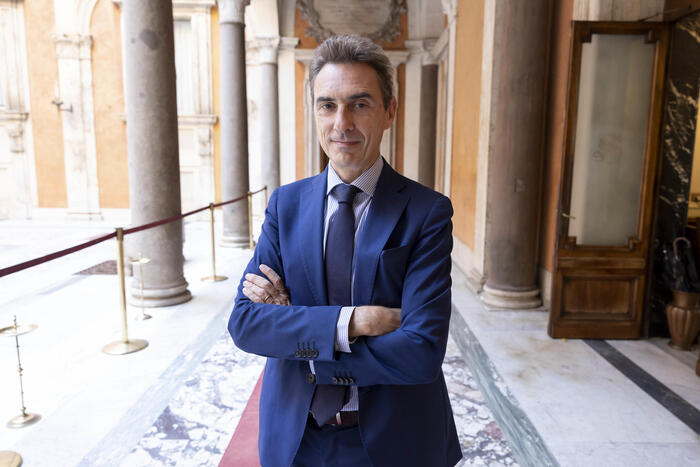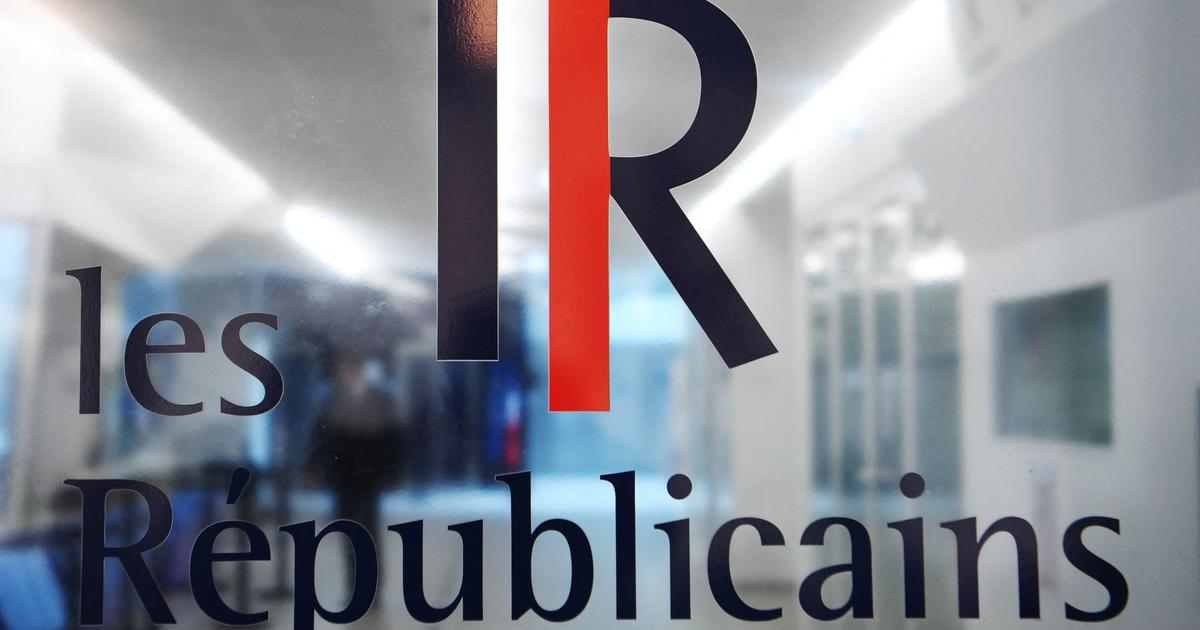Enlarge image
Left-wing politician Bartsch: "parliamentary group paralyzed"
Photo: Peter Rigaud / DER SPIEGEL
Ex-party leader Bernd Riexinger is now quite blunt.
In a Facebook entry on Tuesday, he wrote that "a realignment in the Bundestag parliamentary group" is needed.
The alliance of the right wing around Dietmar Bartsch and the left wing around Sahra Wagenknecht had "paralyzed the parliamentary group" because it was "mainly based on power politics."
Riexinger continues: "A continuation would have no perspective in terms of content."
His message is clear: the previous group leaders Amira Mohamed Ali and Bartsch should give up their posts. Both were once elected to their offices thanks to the so-called horseshoe alliance within the party. This includes the far left part of the Bundestag faction around Wagenknecht and the old pragmatists wing from East Germany around Bartsch. Years ago the alliance was supposed to be the peacemaking solution to end the internal power struggles.
But new conflicts quickly flared up.
The calls from the unconsidered part of the group are now getting louder to agree on a consensual list in the future.
Like Riexinger, they see the horseshoe alliance as one of the main causes of the electoral defeat because it has been causing massive disputes in the party for years and substantive issues remain unanswered.
The left only won 4.9 percent of the general election.
"Colorless, uncreative, boring, not inclusive"
Supported by several members of the Bundestag, 13 members of the party executive are now urging a special board meeting for Sunday at short notice.
The group includes, for example, the deputy party chairman and MP Martina Renner.
According to the agenda, which is available to SPIEGEL, it should be about the "expectations of the party executive of the new parliamentary group with regard to work priorities, working methods and an inclusive parliamentary group leadership".
more on the subject
Reason in the party proceedings against the ex-parliamentary group leader: Wagenknecht has "inflicted serious damage" on the left - but is allowed to stay
Mario Czaja's election victory in Marzahn-Hellersdorf: The red sock of the CDU by Timo Lehmann
Left boss Wissler on the consequences of the federal election: "I would like to see that Scholz and Lindner reform Hartz IV first" An interview by Timo Lehmann
In other words, significant parts of the party leadership no longer want to accept the faction's old power structure.
They are calling for a fresh start - without Bartsch and Mohamed Ali, who, from the point of view of the critics, stand for the continuation of the group.
Some in the party see this as an attempted coup against Bartsch, which the group denies.
"Colorless, uncreative, boring, not inclusive" are Bartsch and Mohamed Ali, says a party executive.
Both had moved to the top of the parliamentary group according to purely internal party logic, but now strategically the best speakers must be put forward.
Left MP Kathrin Vogler puts it more diplomatically: "If we want to be noticed under the difficult conditions, something has to change at the top of the parliamentary group," she told SPIEGEL.
She welcomed the special meeting of the party executive committee.
A possible solution is also presented by some in the background, which would save face for all sides.
For example, the previous Parliamentary Managing Director Jan Korte should take over the chairmanship.
Bartsch himself built Korte as his possible successor, who is valued across all camps.
In a duo with Korte, party leader Janine Wissler could work at the top of the parliamentary group and Mohamed Ali, in return, could switch to the position of parliamentary manager.
Wissler's confidante Nicole Gohlke, MP from Bavaria, is also mentioned as an alternative for the parliamentary group chairmanship.
The directly elected Saxon MP Sören Pellmann also briefly brought himself into play.
Wissler and Korte's ambitions are unclear
So there are options for a fresh start.
But both from Bartsch's and Mohamed Ali's camps, it is said that they see no reason for a change.
The electoral defeat would be unjustifiably blamed on top candidate Bartsch.
In any case, the deeper problems of the left could not be solved with a change of personnel.
There is already a majority for both in the parliamentary group, they have "counted".
Enlarge image
Top candidates Wissler, Bartsch
Photo: Kay Nietfeld / dpa
There are also no indications that Wissler and Korte are pushing the two out of office.
In their environment it is said that both are not particularly interested in taking over in this difficult situation, and they certainly do not want to start a new argument.
Wissler assured in interviews that she felt that she was being busy enough as party leader.
Korte has so far been silent.
Does the attempted coup fizzle out in the party executive?
After all, it is clear that the 63-year-old Bartsch will not run again as a top candidate in the next federal election in four years, solely for reasons of age.
The change at the top of the parliamentary group could therefore only take place in one to two years.
Perhaps the board of directors will also negotiate on Sunday for how long Mohamed Ali and Bartsch should be elected chairmen.
Another sensitive point to be raised at the special session is the future foreign policy of the left.
In the last parliamentary group, the responsible working group was dominated by the dogmatists around Wagenknecht, who, above all with their tolerance of autocrats, massively damaged the external image of the left and drove voters to the SPD and the Greens, as some see it.
The left had lost most of the votes to the SPD and the Greens in the federal election.
Now almost all of the former foreign policy-makers are no longer in parliament.
Controversial MPs missed the move, as did pragmatists like Helin Evrin Sommer and Matthias Höhn.
Gregor Gysi will now be used more intensively for the most controversial field of politics among the left.
Ultimately, the group's content orientation is also associated with the people.
The left's hope in the opposition to a traffic light coalition: That they will be the basin for disappointed SPD and Greens voters.
For days they have been tearing up the prospecting government's exploratory paper on Twitter.
Above all in social, health and climate policy, the left wants to score points - and thus work its way out of the depths.









